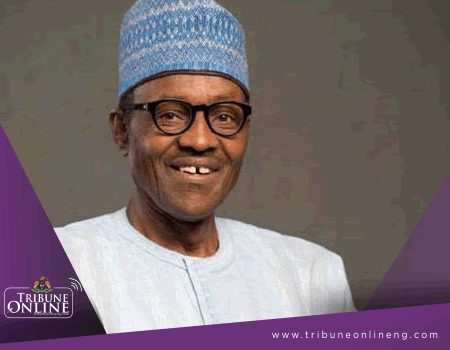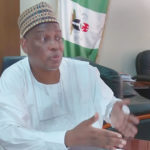TODAY, the Muhammadu Buhari administration clocks two years in office. There is apparently no better time than now to make a definitive statement about the Buhari government because, by this time next year, as it is customary, politicking would have taken over governance and whatever the administration has neither achieved nor laid a solid foundation for now could as well be written off as impracticable and a matter for the next term.
The Buhari government, no doubt, came into office at a time when the name of the country in international circles had suffered very serious denigration. Nigeria was regarded as a country where corruption thrived with impunity. Government had lost the respect of the people and real and imagined heists of very mythical proportions were going on on a daily basis in the Government Houses in the country, the Federal Capital Territory, ministries and parastatals, local government areas and, indeed, in the Aso Villa seat of the Federal Government itself. The ubiquitous terrorist group, Boko Haram, which had, the previous year, abducted over 200 school children from Chibok, Borno State, was still an open sore. Thus, even though no major credential to manoeuvre a troubled economy out of the woods could be credited to him, Nigerians still opted for Buhari. His discipline and comparative incorruptibility earned him the key to the Aso Villa. At the end of the day, it dawned on all that the major plank on which his government was elected was three-pronged: fighting corruption, containing insurgency and revamping the economy.
Has the Buhari government secured a Nigeria better since he came on board? It must be said that the Buhari government’s commitment to tackling insurgency is indeed commendable. The purposeful manner in which the administration has gone about dealing mortal blows on insurgents in the last two years has not only earned it kudos in international estimation, but also won it the hearts of even pessimists who had wondered if the mindless pillaging and murdering of innocent Nigerians by the Boko Haram group would ever witness any let. Shorn of the attempt by the Nigerian military command to engage in unnecessary showmanship by claiming that it had totally routed the insurgents – when the world knows that insurgency can never be totally eradicated – the Buhari government deserves a pass mark in its strides towards routing Boko Haram from the country.
The government also deserves kudos in its handling of the militancy in the Niger Delta. Even though the administration itself triggered the implosion of the militancy through its initial ill-advised hostile dealings with the militants which resulted in the daily bursting of oil pipelines, it must be commended for waking up from its slumber and engaging the insurgents in a productive manner, an engagement that has brought a commendable quiet around the flow of crude oil. At a time, government’s intransigent disposition towards the militants shrunk Nigeria’s oil export to an alarming low as daily oil production reduced to barely a million barrels. However, as the intensity of the Boko Haram insurgency is going down, herdsmen’s insurgency is taking over at an alarmingly disquieting proportion. Nigeria is daily becoming less secure as cattle rustling, herdsmen’s attacks, kidnappings, robberies and allied crimes are taking over the Nigerian space. In these violent crimes, government is either exhibiting lack of understanding regarding what to do or is literally standing akimbo while these criminal elements take away the peace of the nation. The most critical is the herdsmen’s attacks which have become so rampant that they occur every other day. Government has maintained an embarrassing sturdy silence towards these attacks, so much that it is believed that the Buhari government is in abetment of the killings, for whatever reason.
Significant for assessment is also the government’s score in the area of fighting corruption. Indeed, this government has significantly heightened awareness on anti-corruption. However, apart from the public example that is mainly obtained on the pages of newspapers, there cannot be said to be any significant movement towards eradicating corruption in Nigeria in the last two years. Indeed, those close to operations in government offices say that the initial anti-corruption hoopla of government has merely given way to people to devise different strategies of perfecting corruption. This is reinforced by the realisation that seldom has there been any conviction yet in the last two years of the anti-corruption show, with a general perception and consensus that the anti-corruption fight of this government is selective, evidenced by the mass exodus of Peoples Democratic Party (PDP) politicians into the ruling All Progressives Congress (APC).
It is noteworthy, as a critique of the advertised strides of the Buhari government as having succeeded in stemming corruption in Nigeria, that the corruption perception index hasn’t changed. Transparency International still rates the country as sprinting in the front row of corruption. Beyond media trial, it is instructive that much more money was recovered from the duo of Cecilia Ibru and Erastus Akingbola under the past government than this administration has in its strings of media-facilitated recoveries of stolen funds.






